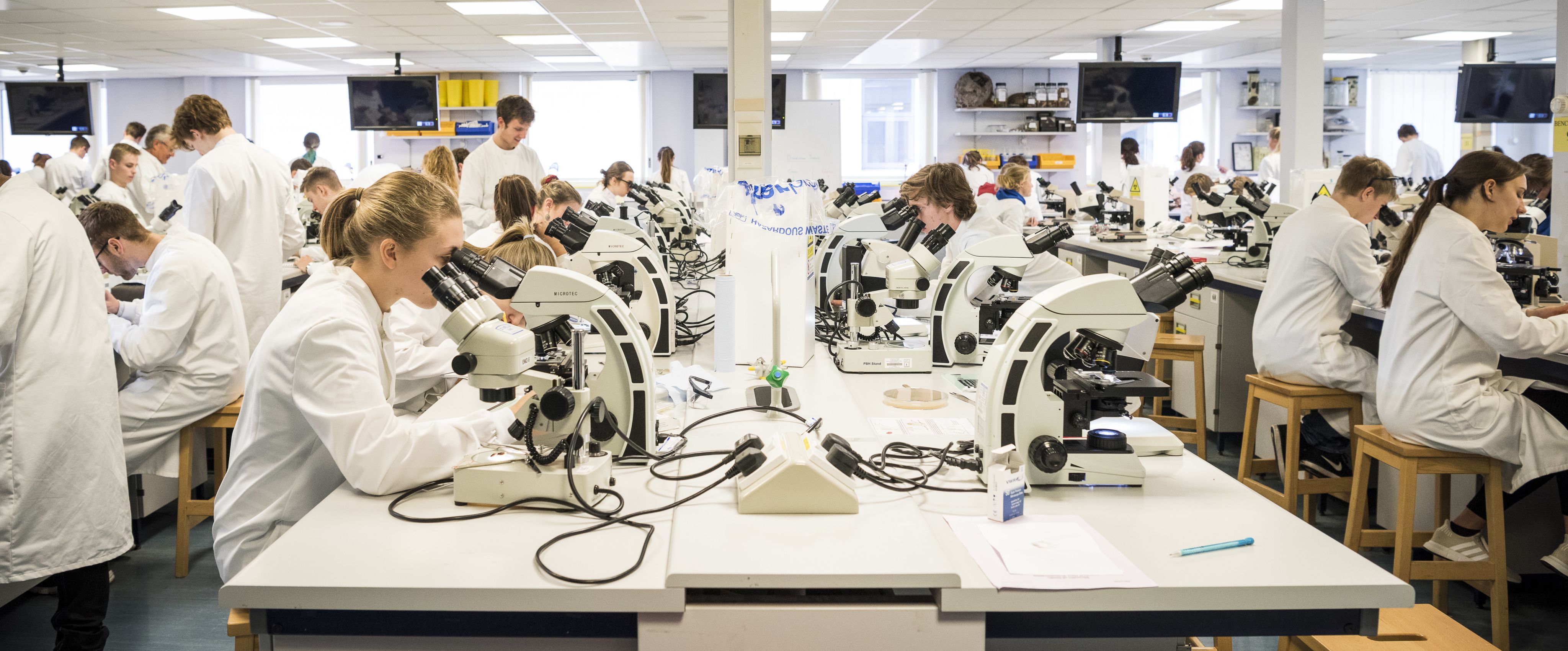The future of food
From seaweed burgers to lab-made meat: discover the healthier, eco-friendly meals you’ll be enjoying in years to come.
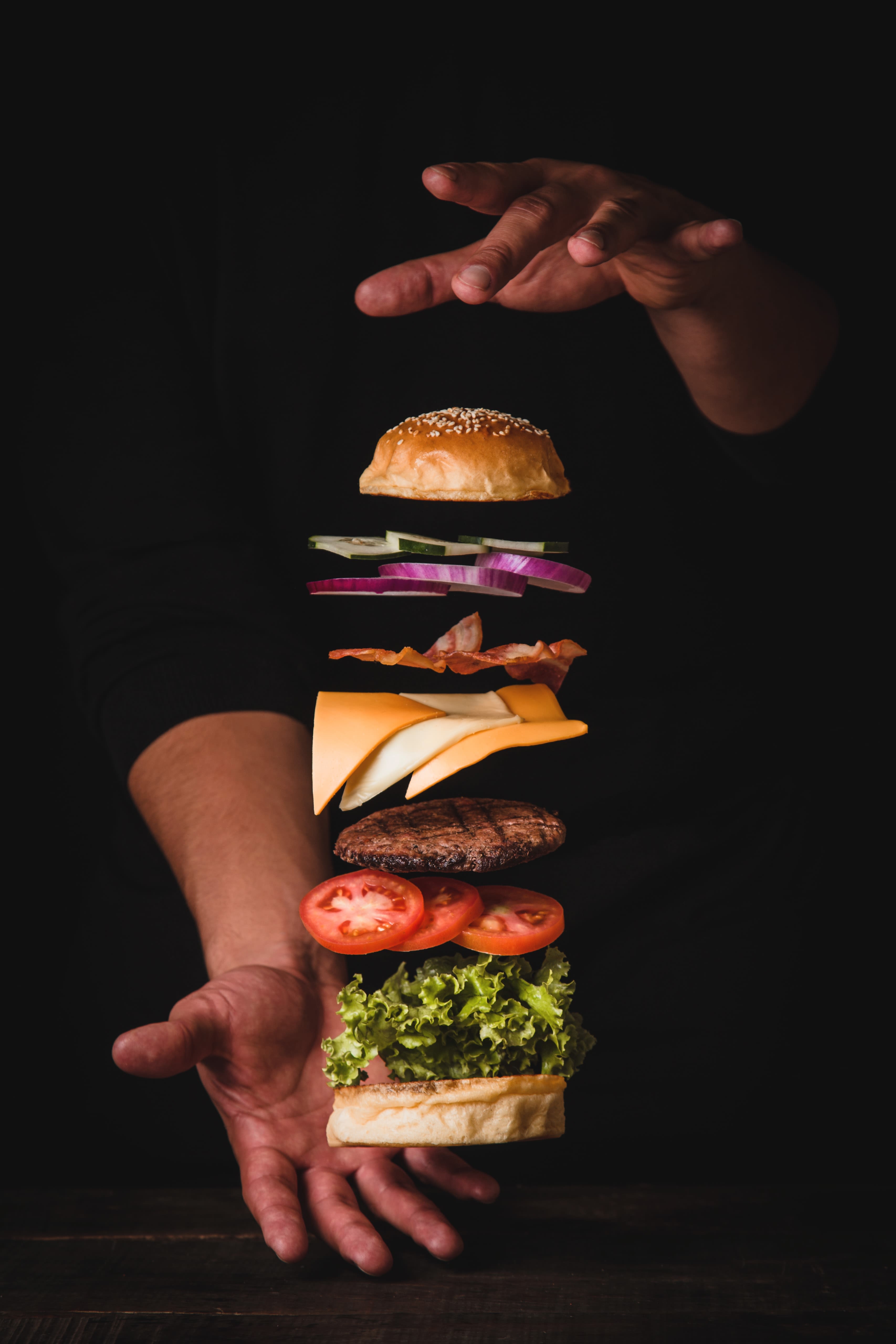
There’s a growing appetite for sustainable, ethically produced food that won’t cost us the Earth. A triple threat of global warming, a shortage of agricultural land and an ever-growing population means that we need to serve up something new to ensure food security. At Bath, our researchers are revolutionising the future of food, from petri dish to plate.
Professor Marianne Ellis from our Department for Chemical Engineering is an expert in tissue engineering and believes that cultured meat is the answer to the demand for protein. “Our current food production methods will not scale to produce what we need to feed everybody,” she says. “Cultured meat is a way to do that and also address our climate issues.”
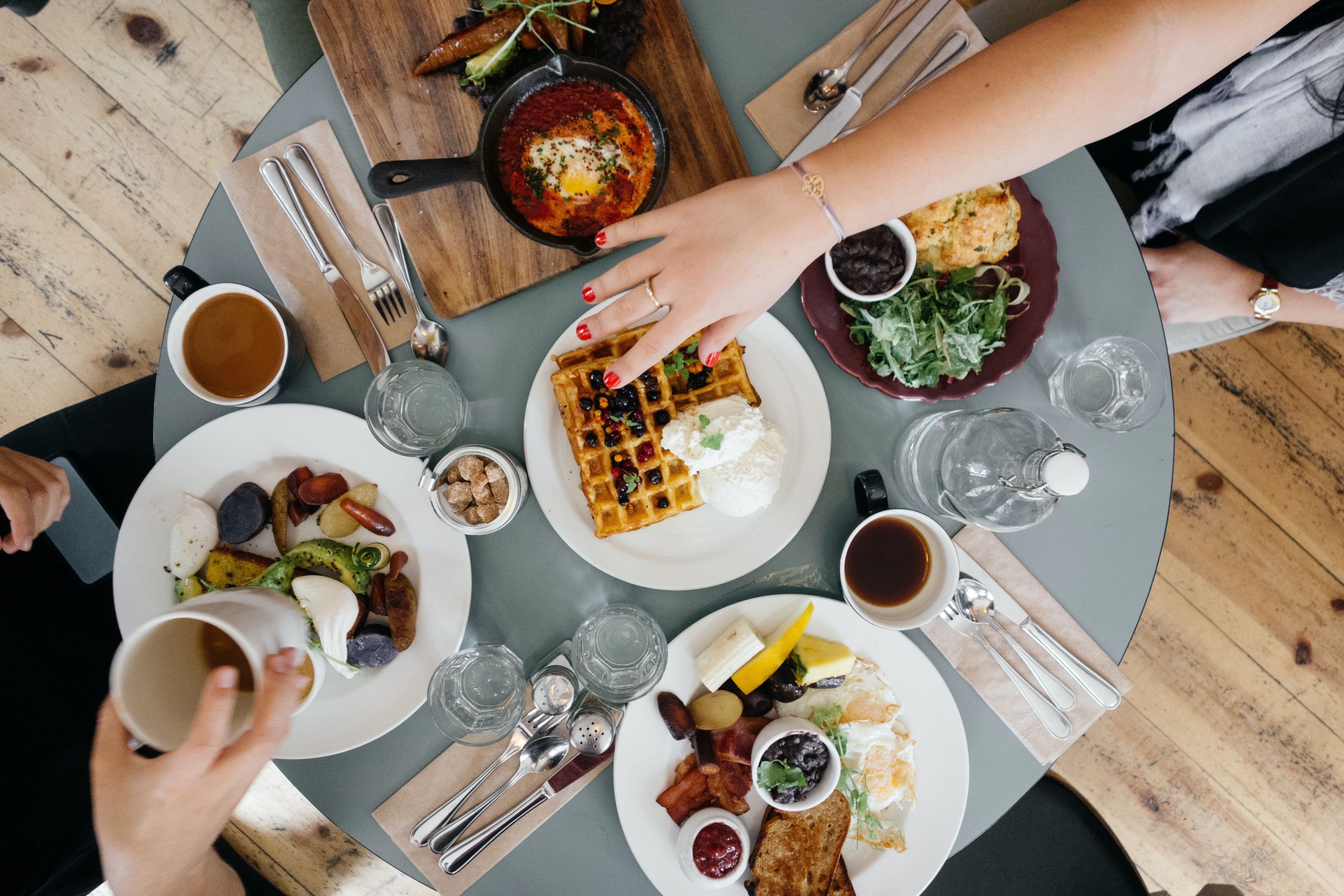
To produce cultured meat, a cell sample is taken from an animal and fed a mixture of glucose, amino acids and nutrients, which encourage it to multiply. “Muscle cells like having something to attach to, so we’re using grass,” Marianne adds. “You can remove the grass cells so what you’re left with is a structure that the muscle cells can grow on, which is also fibrous, so you can eat the grass along with the meat.”
The cells multiply and mature inside vessels called bioreactors to become muscle tissue – a slaughter-free substitute for lean mince that uses much less land, water and energy.
This process also produces fewer emissions, which is crucial because meat is responsible for nearly 60% of all greenhouse gases from food production worldwide. Cultured meat would dramatically reduce this – if it can be produced in large enough quantities.
“My team and I are trying to solve the problem of how we can make affordable cultivated meat on an industrial scale, but it’s not just about size,” says Marianne. “It’s also about net zero carbon processes, animal-free raw materials and healthier diets."
"The technologies we’re designing will be impacted by what people want to do with them – considering the end-product is important and I believe it should be something that’s good for our health and wellbeing.”
Cultured meat seems to be good news for the climate, animals and our diets, but what about farmers? Marianne is working with the agricultural industry to understand the process from all perspectives.
She co-founded Cellular Agriculture Ltd with farmer and food product developer Illtud Dunsford, and the pair believe this new industry will complement traditional farming by adding value to livestock. Animals could instead be used to produce smaller quantities of high-end meat, such as steak, which is difficult to recreate using current techniques.
Illtud adds: “Our aim has always been to focus on the long term, making cultured meat a reality in local grocery stores, available to all and as a tool to feed a growing global population."
Marianne is now leading on a £12M project to revolutionise food production, funded by the Engineering and Physical Sciences Research Council.
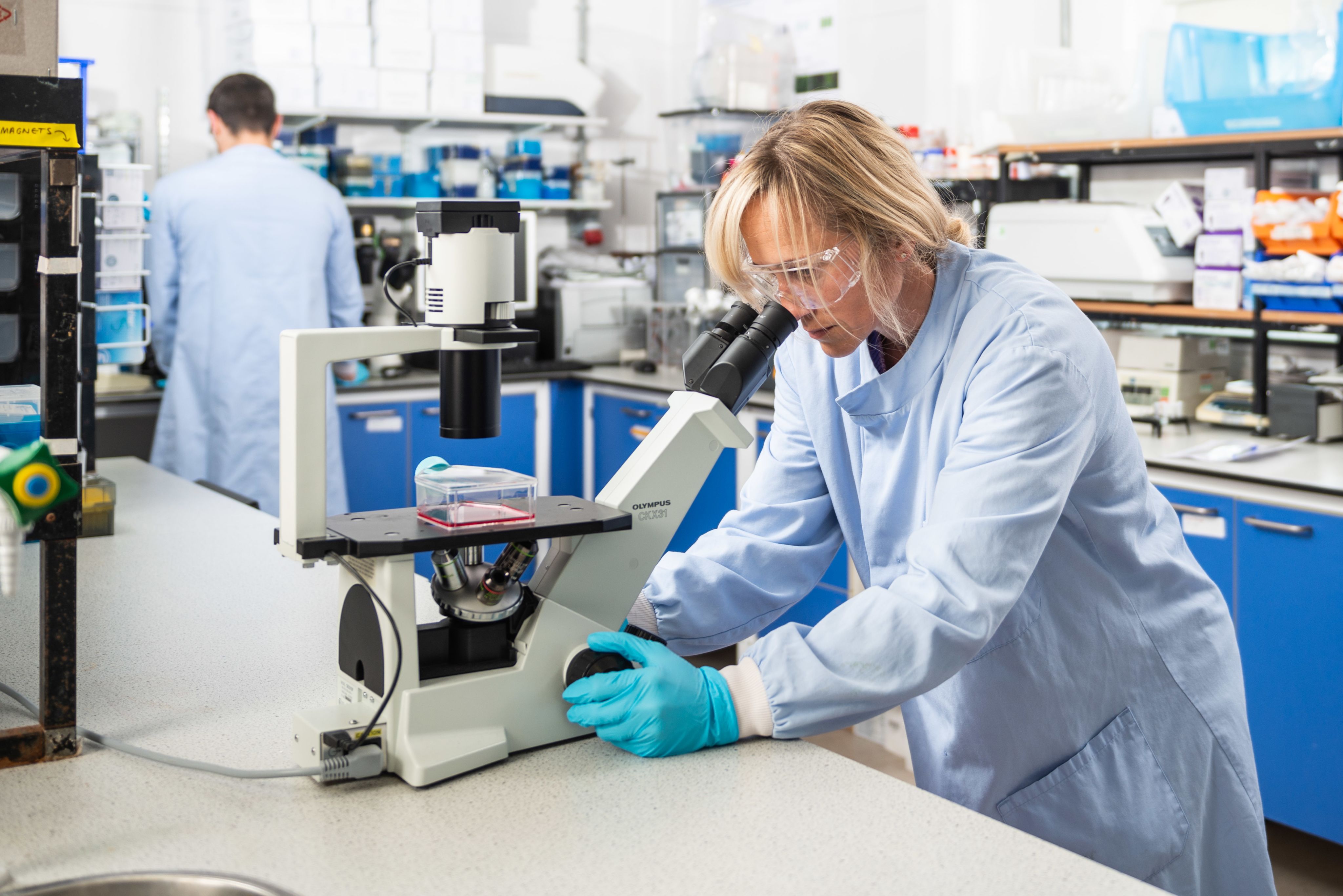
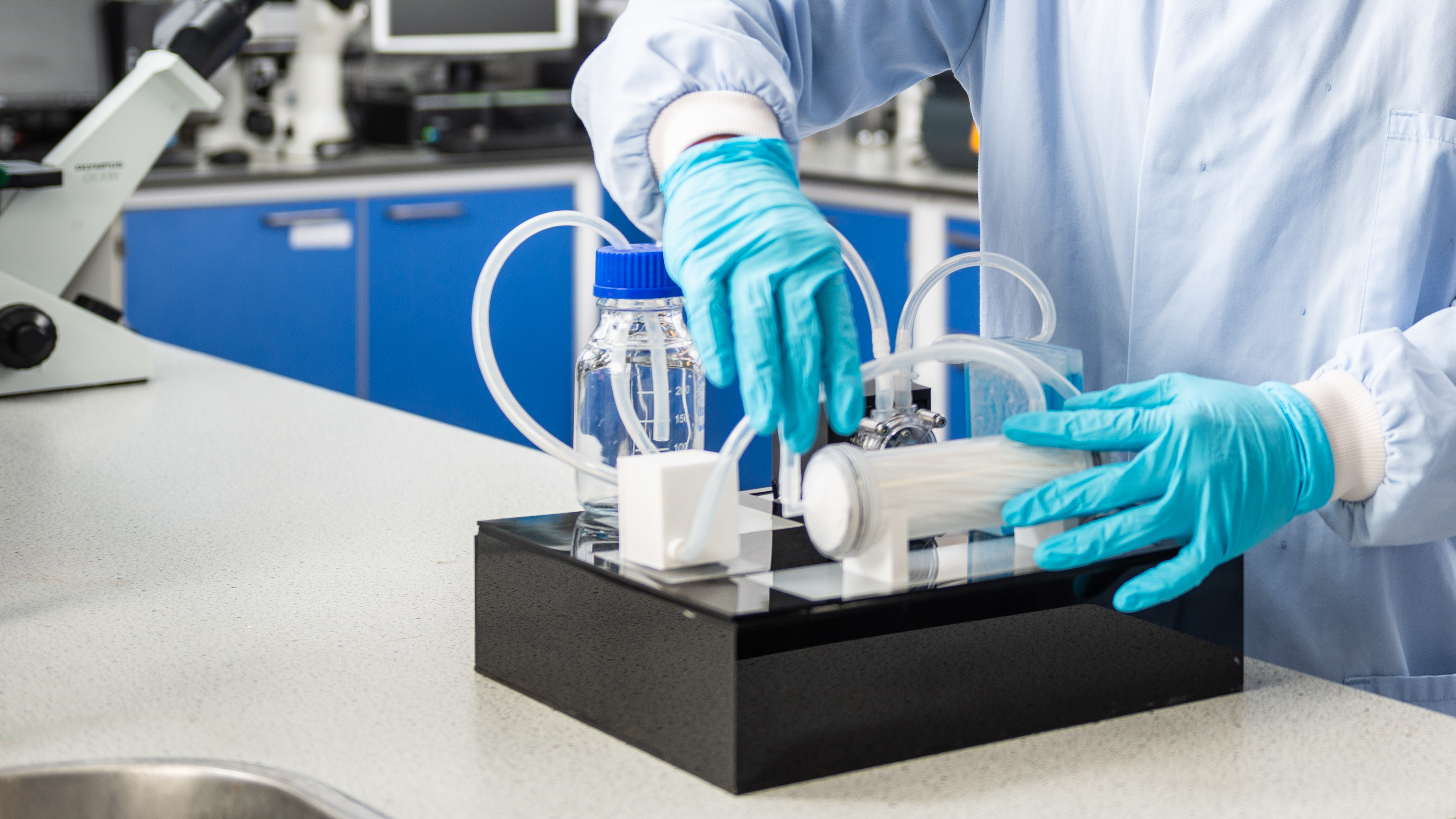
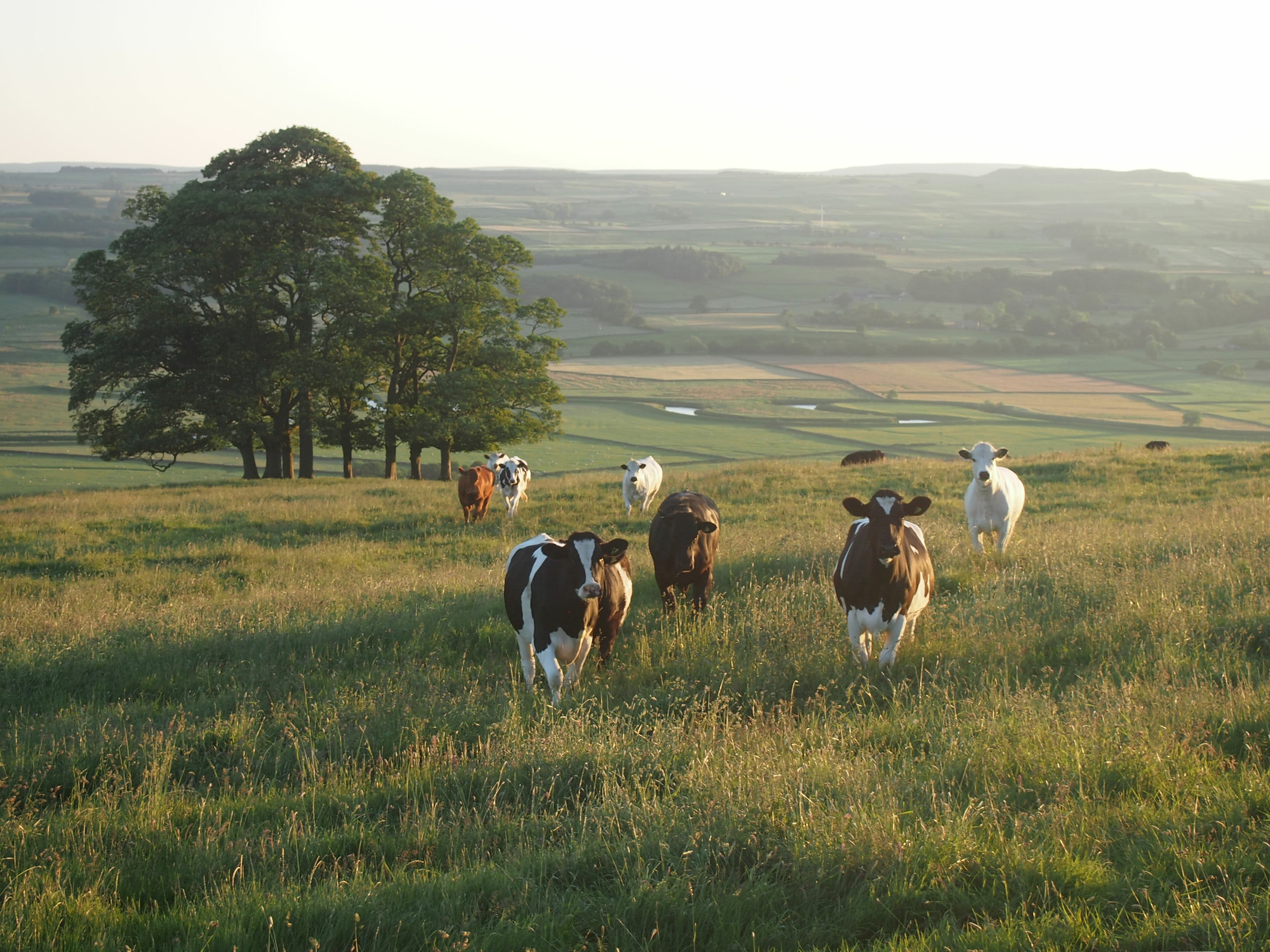
While lab-grown burgers could be available within the next few years, they’re not the only dish that will be new on the menu.
“There’s a whole unexplored space where, for the first time in decades, we can start making completely novel functional foods,” says Professor Chris Chuck.
“When live yoghurt was introduced in the UK in the 1960s, people were unsure about eating live bacterial cultures and it’s since become a core part of what we eat.
"Now, plant proteins are becoming more and more popular – it’s all part of a wave of food innovation and it’s exciting to be a part of this.”
Since joining Bath’s Department of Chemical Engineering as a Whorrod Research Fellow in 2011, Chris has developed a revolutionary alternative to palm oil – the everyday household ingredient so widely used that its production drives deforestation, destroys habitats and accelerates climate change.
Chris’ substitute is made from yeast grown in a lab, which feeds on common waste products – such as straw or wastepaper. It’s the result of years of trial and error, accelerated evolution and the work of many expert minds.
“To get to this point, you need chemists, biologists, engineers and food scientists,” he adds. “We have the networks and expertise at Bath, which is why we have so much impactful research.”
Helping to take this to market is the Clean Food Group, which has invested almost £1.8M. “We now have a dedicated lab on campus and a multidisciplinary team helping to scale the technology for industrial production by 2025,” Chris adds.
“We have a number of big brands lined up who have either invested in the company or are partnering with us to take this forward.”
Replacing palm oil is only the beginning, however. “Plant-based meat alternatives can actually contribute to deforestation, especially when they use soy protein sourced from these regions,” Chris explains.
“But the yeast we have developed is so versatile that we can produce the fats needed as well as a host of other proteins and nutrients alongside this in the cell.
"This could replace all the damaging ingredients in the meat alternative product with just one ingredient grown locally, so that you’re getting multiple environmental benefits from plant-based foods in the future.”
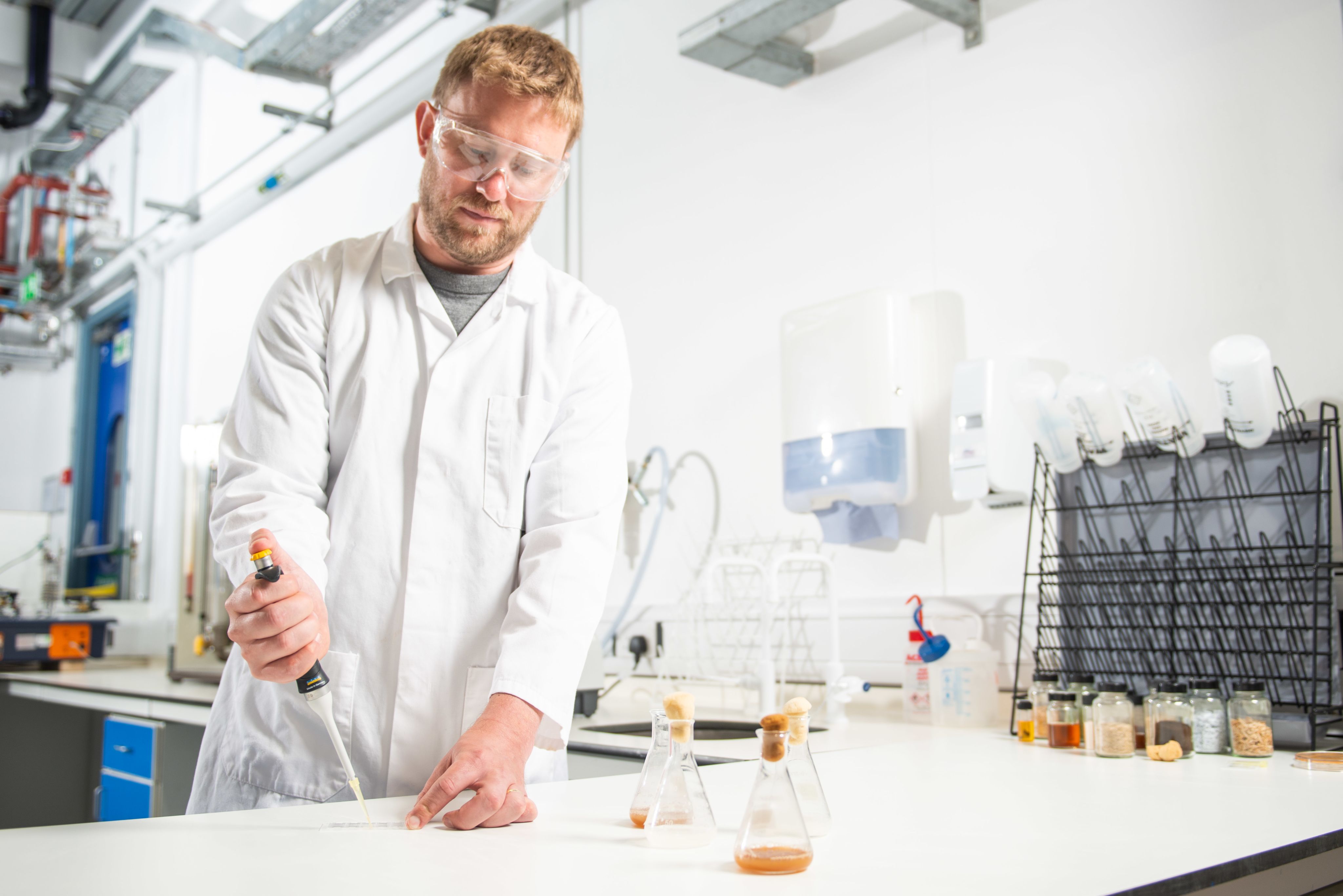
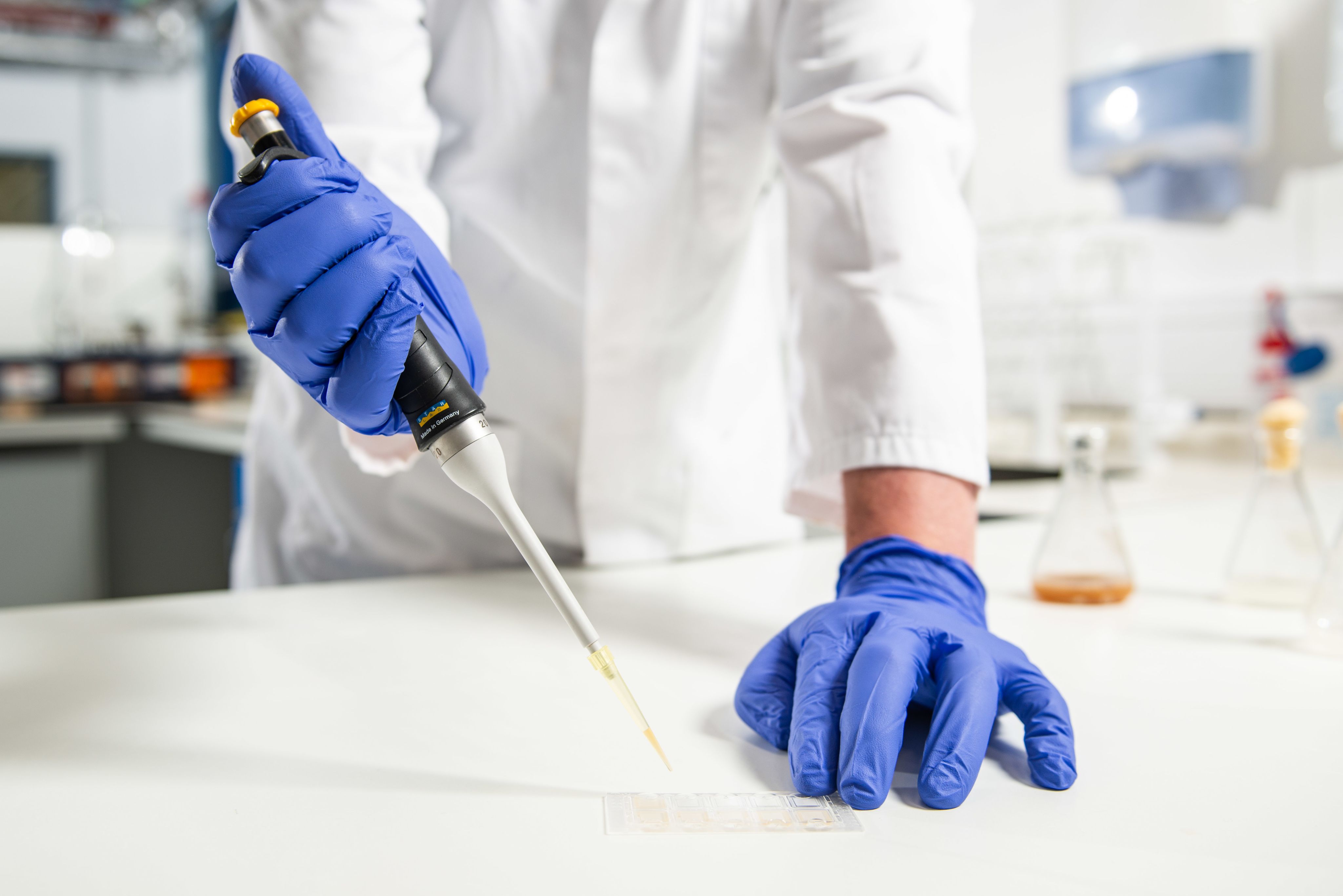
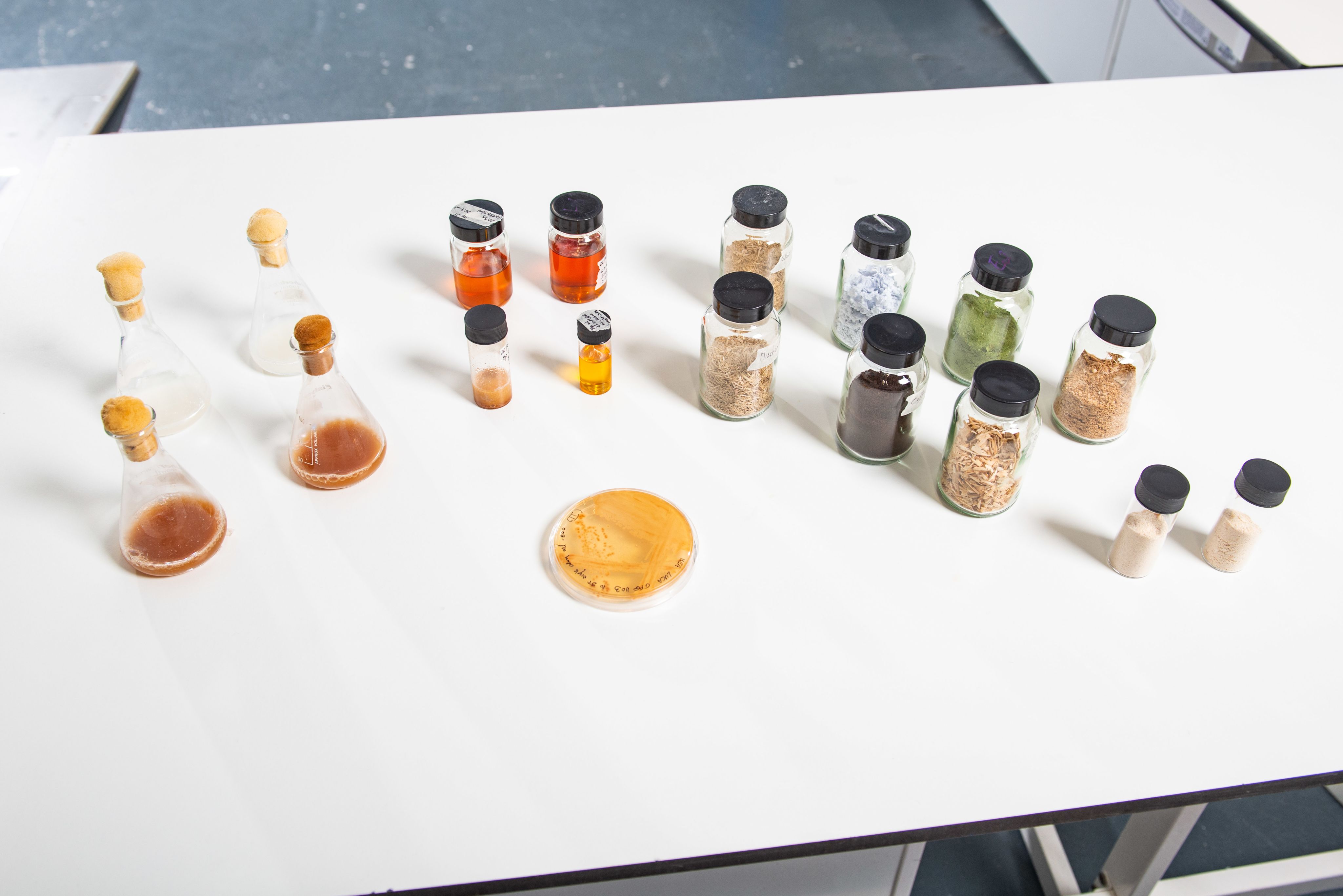
When it comes to our diet, it’s not just the planet that our researchers are working to protect – it's our health, too.
Professor Anna Gilmore began her career as a hospital doctor. She saw first-hand the effects that tobacco, alcohol and ultra-processed foods had on people: “Treatment options just felt like a plaster on the wound,” she recalls. “It was clear that what we needed were more effective preventive interventions.
"We need to really address the underlying causes of ill health and implement public health policies that will save many lives.”
It was this realisation that led Anna to pivot into public health, to tackle the industries behind these products and hold them to account – starting with tobacco.
Anna has led the internationally renowned Tobacco Control Research Group (TCRG) at the University of Bath for over a decade: “We’ve led research exposing how the tobacco industry promotes smoking, blocks public health policies, subverts science and avoids taxes on a massive scale,” she explains.
This research has informed public policy, such as the ban on smoking in public spaces and the introduction of plain packaging for cigarettes. But Anna wanted to go further: “We needed something more immediate that could accompany our academic papers and help to share the knowledge and expertise with a policy community,” she says.
The result was TobaccoTactics.org – an influential Wikipedia-style site that documents insights about the tobacco industry and its affiliates. It’s now used by public health experts, politicians and policymakers, NGOs and journalists all over the world to debunk myths put forward by the tobacco industry and identify affiliated individuals or groups.
Anna’s team are now expanding their approach into ultra-processed foods and alcohol. These are known to cause non-communicable diseases, such as cancers and heart disease, which account for over 70% of deaths per year globally.
"It’s the massive injustice of it all, the fact that it’s putting at risk the lives of millions, including the most disadvantaged,” says Anna of her motivation to take on these issues.
“If we’re serious about improving health in the long term, we have to keep shining a spotlight on the role these industries are playing in driving ill health and undermining public health efforts to tackle it."
The important role Anna’s work has played in the emerging field now known as the 'commercial determinants of health' is highlighted in this profile piece in The Lancet. It accompanies the leading medical journal's first-ever series on this issue, in which Anna was asked to author the first paper.
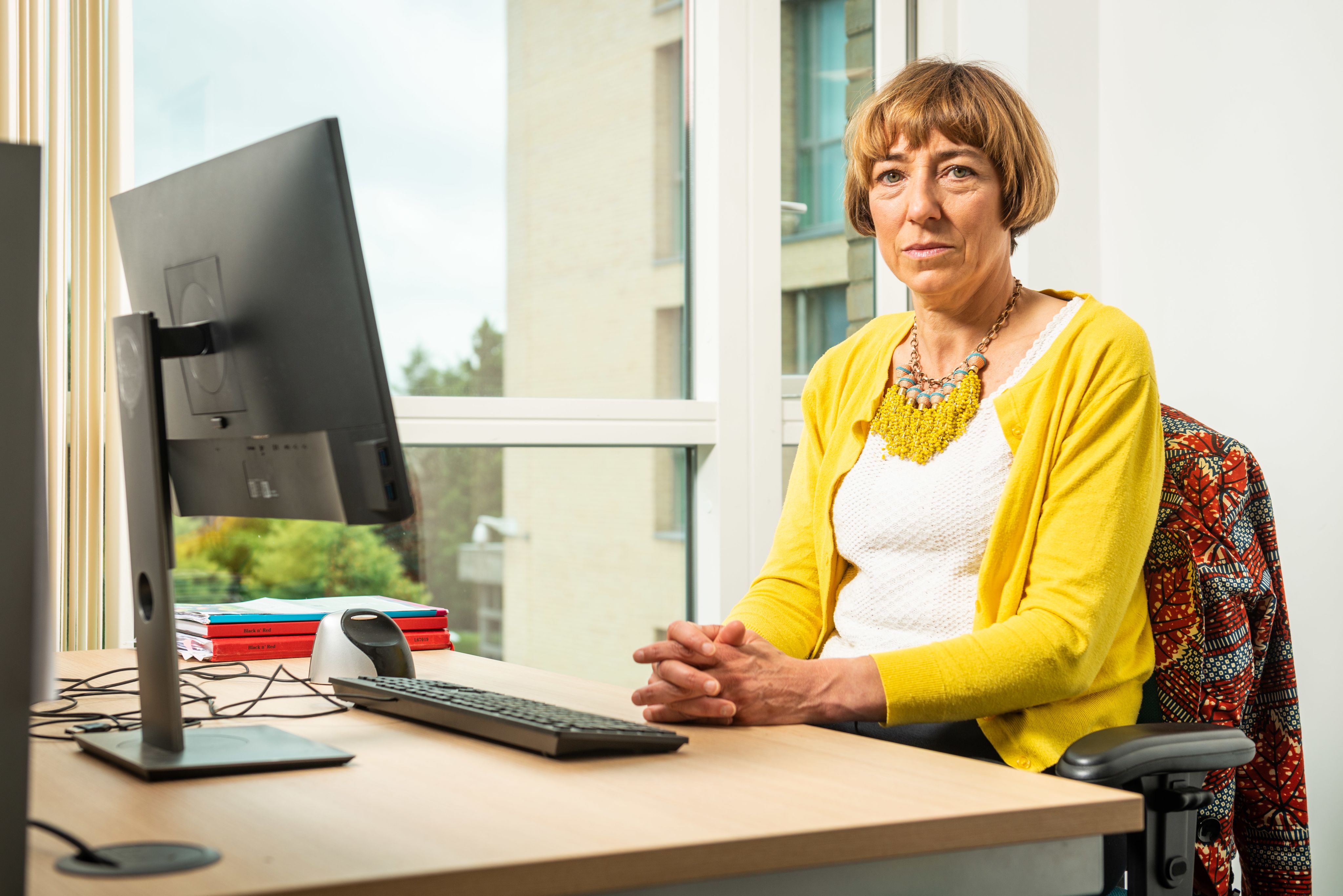
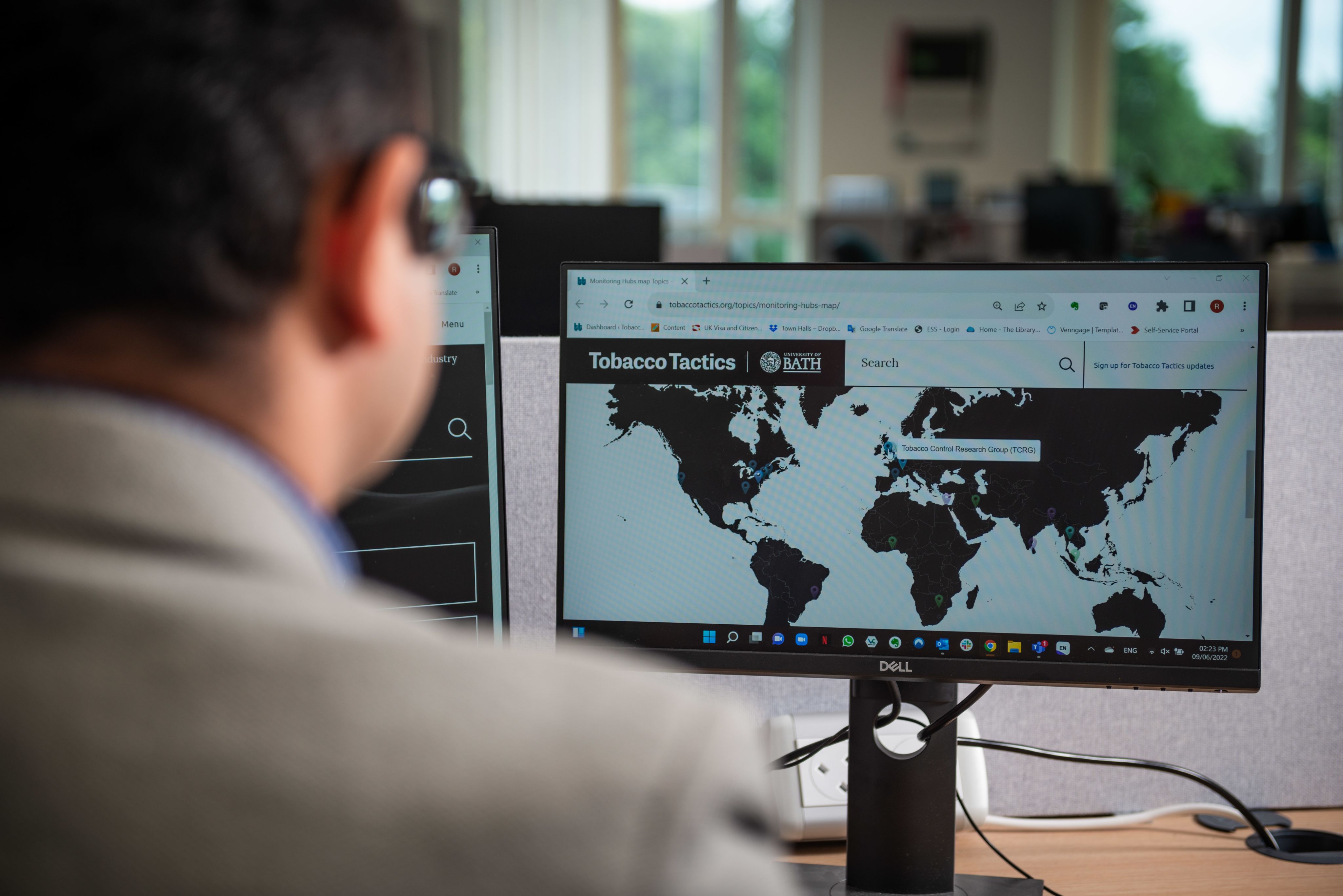

To tackle the numerous challenges around food security, experts from different disciplines all around the University are working together to create real change. From their production to their ingredients, the meals of the future will be better for both our health and the environment.
Bath researchers such as Chris are excited to play their part. “I want to be part of that wave where, in 30 years’ time, we’re eating very different, much more interesting and sustainably produced foods – from grass and yeast to bacteria and algae.”
He adds: “Once we displace the unsustainable ingredients like soy and palm oil, we can then go further and create foods with new flavours, textures and nutritional profiles. What that looks like, I don't know... seaweed burgers?! We need to work on the branding...”.
Lab images by Laurie Lapworth / University of Bath
